Learn how specific vitamins, minerals and nutrients can help optimize your immune system with specfic testing including a comprehensive microbiome lab, looking at antibody responses to specfic foods, viruses or pathogens, and genetic testing to look at longevity and how you are aging. Medicine has changed significantly in the last decade. Ask our team how to unlock your potential!
The immune system is a complex network of cells, tissues, and molecules that work together to protect the body from harmful pathogens. Key components of the immune response include T cells (including T helper and regulatory T cells), B cells (which produce antibodies), cytokines (signaling molecules that coordinate immune responses), natural killer (NK) cells (which can directly kill infected or abnormal cells), and dendritic cells (which initiate and shape the immune response by capturing and presenting antigens to T cells). Together, these components play crucial roles in defending the body against pathogens and maintaining overall health.
The role of diet as a risk factor for various complex immune disorders, including inflammatory bowel disorders, diabetes, rheumatoid arthritis, multiple sclerosis, and asthma, is well established. Recent research has also highlighted the importance of a healthy diet that includes phytochemicals, fatty acids, and vitamins such as A, C, and D in maintaining long-term health.
Vitamin A, B, C, D, and prebiotics have been found to play important roles in maintaining gut health and addressing leaky gut, which is a condition characterized by increased intestinal permeability. Vitamin A, specifically its metabolites such as all-trans retinoic acid (RA), has been shown to be crucial in maintaining mucosal immune homeostasis and oral tolerance. RA is produced in high levels in the small intestine due to the expression of retinal aldehyde dehydrogenase (RALDH) by gut epithelial cells, which metabolize dietary vitamin A. Vitamin B, including B6 and B9, also plays a role in regulating mucosal immunity. Vitamin B6 enhances cell growth and differentiation, and its deficiency can impair immune function, while its supplementation can repair and enhance weakened immune responses. Folic acid or vitamin B9 is important for protein and nucleic acid synthesis and has been shown to influence the activity of natural killer (NK) cells and CD8+ T cells, as well as being involved in the function of regulatory T (Treg) cells, which are important in oral tolerance induction.
Vitamin C, known for its antioxidant properties, is also essential for immune function. Inadequate intake of vitamin C has been shown to disrupt T cell and B cell function, as well as natural killer cytotoxic activity. Vitamin C is highly concentrated in leukocytes, but during infections, it is rapidly depleted to scavenge reactive oxygen species (ROS). Lower intracellular content of vitamin C may lead to increased apoptosis of immune cells, resulting in immune suppression. Studies have shown that increased concentrations of vitamin C can inhibit apoptosis of monocytes and T cells, while also enhancing natural killer cell cytotoxic activity of human lymphocytes.
Vitamin D, specifically its active form 1,25-dihydroxyvitamin D3 or 1,25-(OH)2D3, has been found to induce immunological tolerance. It promotes the generation of tolerogenic dendritic cells (DCs) or antigen-presenting cells (APCs) with impaired ability to activate autoreactive T cells. These impaired DCs have reduced ability to process and present antigens from food and friendly bacteria to T cells. Vitamin D3 also suppresses immune responses and protects against autoimmune disorders, while enhancing the antimicrobial properties of monocytes and macrophages, thus increasing the body’s defense against invading microorganisms. This defense against microbial pathogens is associated with the activation and production of defense peptides such as cathelicidins and defensins.
In addition to vitamins, prebiotics, which are non-digestible fibers that selectively stimulate the growth and activity of beneficial gut bacteria, have been shown to play a role in gut health. Prebiotics promote the growth of beneficial bacteria, such as lactobacilli and bifidobacterial, which can help to restore and maintain a healthy gut microbiome. A balanced and diverse gut microbiome is essential for gut health and has been linked to improved gut barrier function and reduced intestinal permeability, thereby potentially addressing leaky gut.
In conclusion, adequate intake of vitamins A, B, C, D, and prebiotics can contribute to the maintenance of gut health and potentially help in addressing leaky gut. These vitamins have been shown to play important roles in regulating immune function, promoting immunological tolerance, and maintaining a healthy gut microbiome. However, it is important to consult with a healthcare professional before making any changes to your diet or supplementation routine. Overall, a balanced and diverse diet that includes these essential vitamins and prebiotic-rich foods may contribute to optimal gut health and overall well-being. So, incorporating these nutrients into your diet may be beneficial in supporting a healthy gut and immune system.
Leaky gut syndrome is a condition where the lining of the gut becomes compromised, allowing harmful substances to leak through the gut wall and into the bloodstream, potentially leading to inflammation and other health issues.
SBI Protect and Arabinex (arabinogalactans) are two dietary supplements that have shown to support gut health, particularly in the context of leaky gut syndrome. Here’s how they work:
SBI Protect is a dietary supplement made from bovine immunoglobulins. Immunoglobulins are a type of antibody that plays a crucial role in the immune system’s defense against harmful substances, such as bacteria, viruses, and toxins. SBI Protect is designed to provide supplemental immunoglobulins to help support a healthy gut barrier function. By binding to harmful substances in the gut, SBI Protect may help prevent them from crossing the gut lining and causing inflammation or damage, which can contribute to leaky gut syndrome.
Arabinex is a dietary supplement that contains arabinogalactans, which are a type of carbohydrate derived from the Larch tree. Arabinogalactans are known for their prebiotic properties, meaning they can help nourish and support the growth of beneficial gut bacteria. This can help promote a healthy gut microbiome, which in turn can support gut barrier function. Additionally, arabinogalactans have been shown to have immunomodulatory effects, meaning they can help regulate the immune system, potentially reducing inflammation in the gut and supporting gut health.
SBI Protect and Arabinex supplements are believed to work by supporting gut barrier function, reducing inflammation, and promoting a healthy gut microbiome, all of which can help alleviate symptoms associated with leaky gut syndrome. However, it’s important to note that supplements should be used under the guidance of a healthcare professional, and their effectiveness may vary depending on individual circumstances. It’s always best to consult with a healthcare provider before starting any new supplement regimen.
Reference:
Food-Associated Autoimmunities: When Food Breaks Your Immune System By Aristo and Elroy Vojdani


